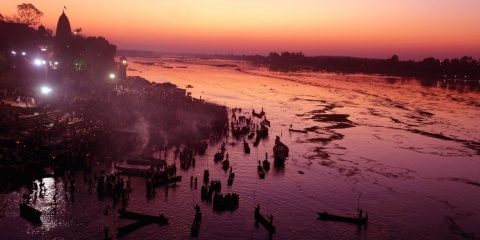
Free trade benefits everybody, the G20 say. Emerging nations like India prove the opposite
Networking, communication, partnership and commitment are but symbolic words to demonstrate a world full of commonalities and cooperation. But commonalities and cooperation cannot be founded on economic interests and free markets. Much less can they be feigned in a time where trade relations dominate the globalised world – at the expense of basic human rights.
There has been enough writing about disparities existing and emerging in different parts of the globe. The world is full of political and economic crises, ecological damage and increasing egoism.
Nevertheless, countless summits promise equality, sustainability and responsibility. Although the economically strongest countries have met eleven times already at the G20 summits to discuss and improve the “adaptability of the global financial systems”, again we find ourselves in a time of economic uncertainty and conjunctural (does that word exist in English?) slowdown. Interestingly enough, hopes for more sustainable development also seem to have less and less cause.
Excuse my cynicism – it is not founded on pessimism. But neither can I be blindly optimistic when I become aware of the growing social discrimination and marginalisation that the free market fuels. The assumption, neoliberalism was inevitable and the market were to offer all imaginable opportunities is just not right. Especially not in India, which, by way of high multidimensional poverty, gender inequalities, ecological problems and the missing change in education and health policy, continues in to fall in the Human Development Index (HDI).
The global trade relations are undemocratic
Still, India remains an attractive target for foreign investments. What that means? It means regular expulsions and appropriations, local knowledge and traditional competences being replaced by modern approaches. Every attempt of protecting the rights and existential foundation of those evicted is being countered with the accusation of trying to infer with India’s development agenda.
For the sake of development, the nuclear power plant Kundankulam was built, the biggest atomic plant in all of India, that is now menacing biodiversity and bears the constant threat of a nuclear catastrophe.
It was also called progress when the authorities closed their eyes in face of the toxic waste produced by the heat plant Essar in the middle of the beautiful Mahan forests located in the heart of India. Blind eyes were also turned towards the destruction of life and habitats at the Narmada river when the Sardar Sarovar dam was built.
The Indian state’s definition of progress and the adaption to the growing energy consumption has, especially in the marginalised classes of the population, caused great damage – with lasting support of international investors, the World Bank and the IMF.
India has, as an emerging nation, meanwhile occupied an important position in global trade. This could be an opportunity to tackle the undemocratic structures of global trade relations that have been established as status quo for a long time. However, the current tendencies of the Indian trade policy seem rather totalitarian than democratic. The lack of infrastructure, environmental regulations, appropriate labour legislation and other basic ethical operational principles in India contradicts the claim that the free market benefitted everybody.
Symbolic gestures à la G20? Redundant
The guidelines for trade and investments cannot be pressed entirely into a collective system, but have to respect the special legal characteristics of each country partaking. But the continuing disappearing of collective regulations of the fiscal system – which the G20 originally intended to create – means a further exploitation of developing countries and their population. The free trade agreements originating from these cooperations continue to stuff the pockets of international corporations – at the expense of smaller producers and entrepreneurs from development countries.
The G20 summit continues to be a symbolic gesture, captured in perfectly elaborated communiqués. It is an encouragement for the powerful instead of paving the way for reasonable social change which would lead to less inequality and improve the lives of those being marginalised. The world, however, requires real and serious political acting instead of mere symbolics – this couldn’t be more obvious than it is today.
This comment was written by Sana Ahmad, an Indian journalist and human rights activist focusing on sustainable development in both India and Europe. At the moment, Ahmad lives in Berlin, researching labour rights in the digitalised world. The article was originally published in the German daily newspaper taz.die tageszeitung.
The article was translated into English by Johannes Schroen. You can find the original article here.





